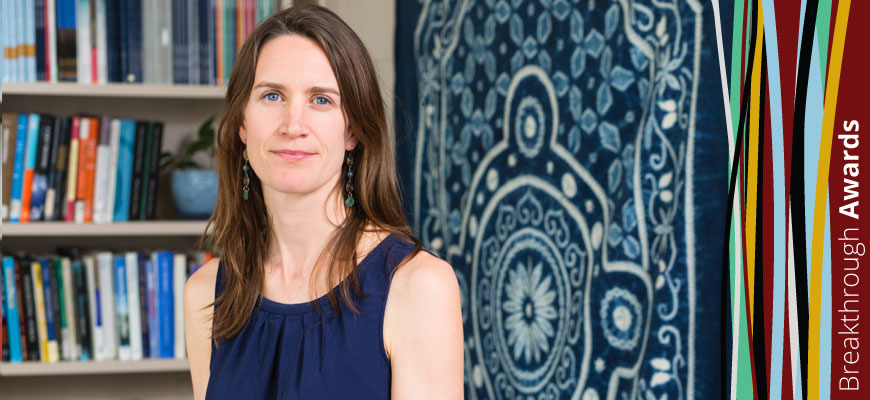
The bread of life
Geography researcher Jessica Barnes looks at how access to life's basic needs affects populations
Posted on: June 23, 2017; Updated on: June 23, 2017
By Melinda Waldrop, melwal@mailbox.sc.edu, 803-777-3685
Complex cultural questions boil down to a pretty simple constant for Jessica Barnes: bread.
Barnes, an assistant professor in both the geography department and the School of the Earth, Ocean and Environment at Carolina, focuses her extensive research on basic needs that shape societies.
“I’m interested in how you can understand more about resources by looking at the complex relationships between society and environment,” says Barnes, whose first book, “Cultivating the Nile: The Everyday Politics of Water in Egypt,” centered on agricultural and irrigation.
“Throughout history, not having water or food has been a flashpoint of protest. I’m interested in those moments, but I’m also interested in how people’s lives are being shaped by whether or not they can access these key resources on a day-to-day basis.”
You have a lot of scholars who’ve looked at food issues and a lot of scholars who’ve looked at agricultural issues. What I’m trying to do in my current book project is connect the two.
Jessica Barnes
Barnes’ first book fueled her second, which is in the data analysis stage. Examining uses of water at local, regional and national levels led her to wheat, a widely grown winter crop and the source of the bread which, at the time of her first fieldwork in Egypt in 2007, was in short supply.
“In urban areas, there were these long lines at the bakeries that sell the government-subsidized bread,” she says. “Sometimes people were having to wait over an hour; sometimes they’d get to the end of the line only to find out there wasn’t any bread. For those who rely on this bread as a major part of their diet, this was a source of great anger. That got bread on my radar as being a critical issue.”
After getting her undergraduate geography degree from Oxford, Barnes, a London native, obtained a masters in environmental management from Yale and a doctorate in sustainable development from Columbia University. A faculty member at Carolina since 2013, she received the Junior Scholar Award from the Anthropology and Environment Society of the American Anthropological Association in the fall of that year.
In 2015, Barnes received an American Council of Learned Societies Fellowship that jump-started funding for her study of food security in Egypt, and in 2016, her first book won the James M. Blaut Award from the Culture and Political Ecology Specialty Group of the American Association of Geographers. She has given lectures and presented papers across the country and internationally and published articles in top geography and anthropology journals.
“You have a lot of scholars who’ve looked at food issues and a lot of scholars who’ve looked at agricultural issues,” she says. “What I’m trying to do in my current book project is connect the two.
“I don’t give policy recommendations. What I hope to do is just to provide more understanding about the political and cultural dynamics that influence how this bread and wheat supply is secured, from a household through to a national level.”
Share this Story! Let friends in your social network know what you are reading about